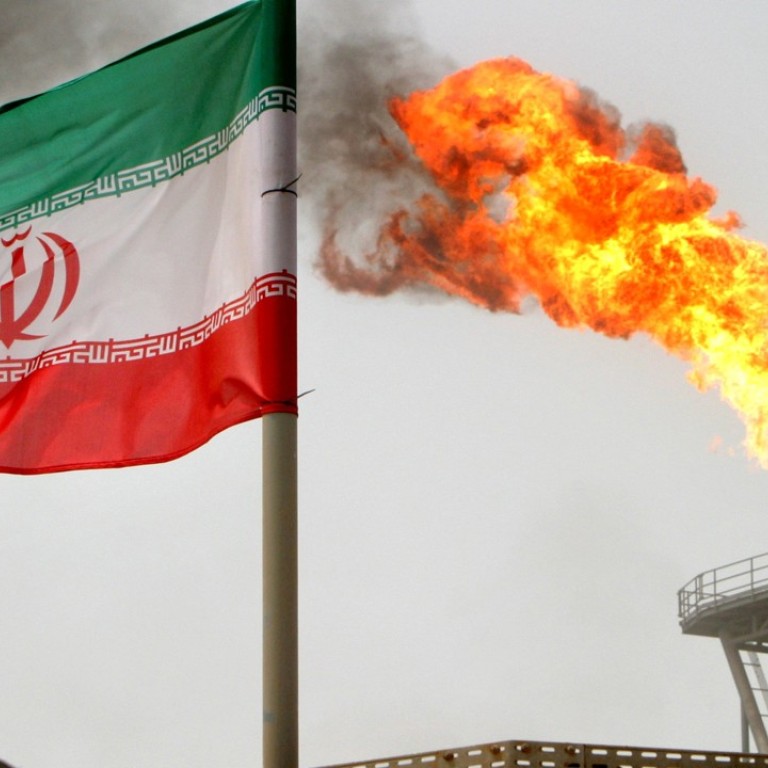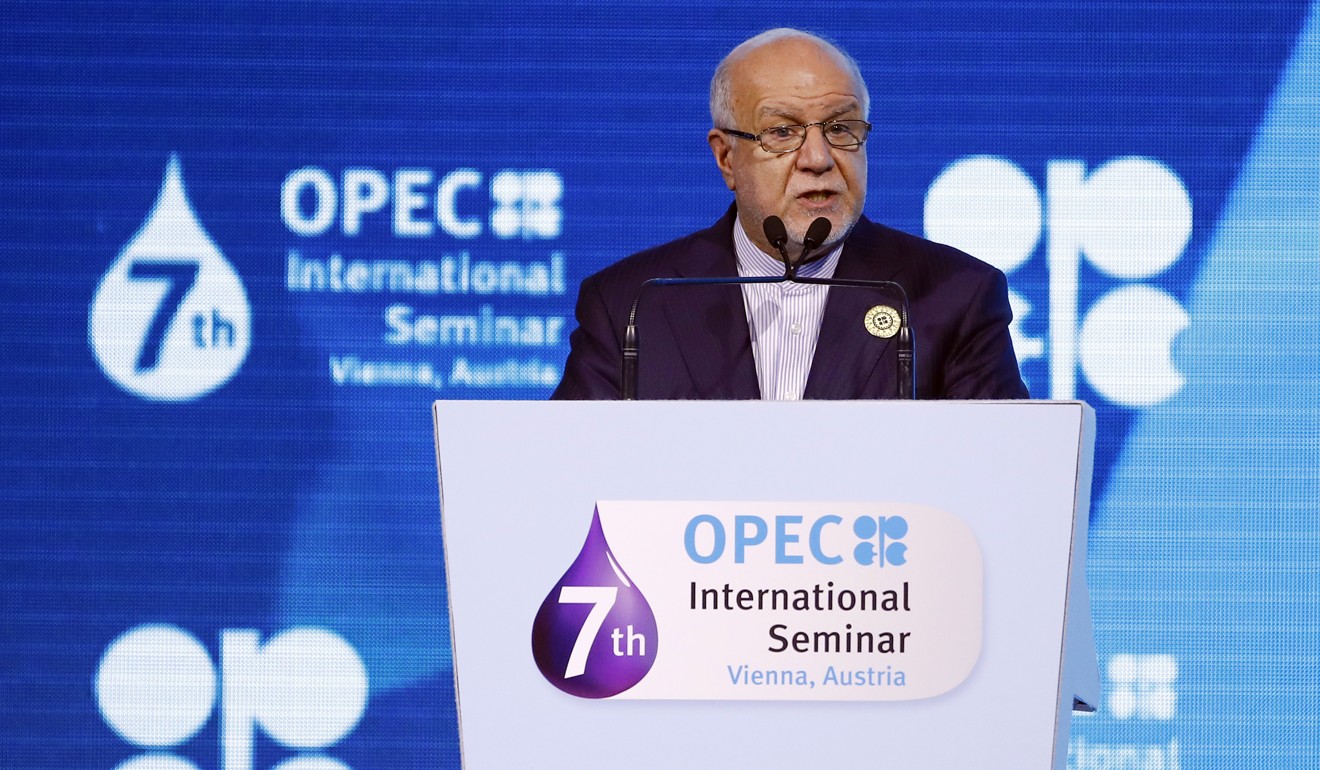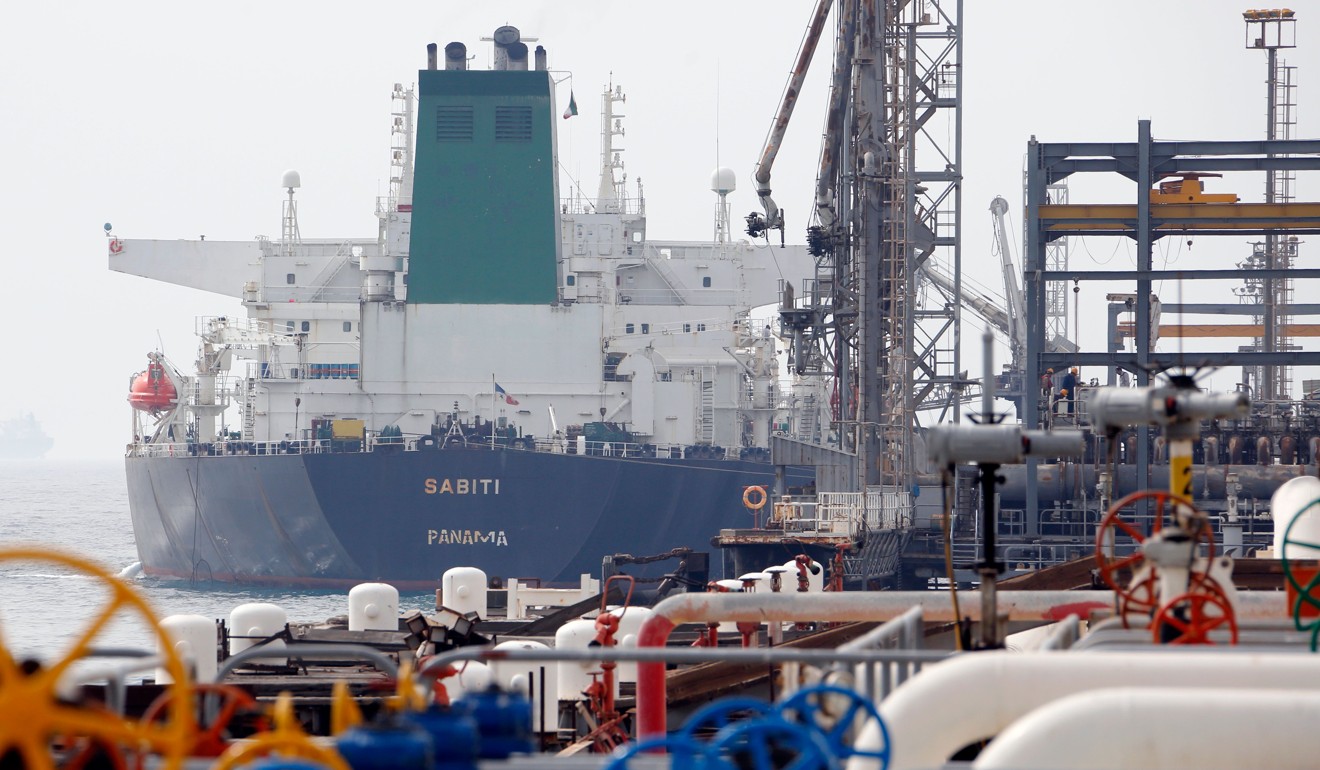
US pressing allies to end Iran oil imports by November deadline, official says
Trump administration won’t rule out waivers or extensions of a deadline set when the US withdrew from the Iran nuclear deal
The US is pressing allies to end all imports of Iranian oil by a November 4 deadline and does not want to offer any extensions or waivers as it follows through on US President Donald Trump’s decision to quit the 2015 Iran nuclear deal, a State Department official said.
In a briefing on Tuesday, the US State Department official said that while the administration would not rule out waivers or extensions to the November deadline – which Trump announced when he withdrew from the Iran deal in May – it isn’t discussing them either.
Global energy demand and investment to remain in growth cycle, BP chief says
Because US allies from Asia to Europe have closer commercial ties to Iran than does America, many analysts expected some flexibility from Washington through waivers.
When Trump announced that the US was quitting the nuclear accord, he warned that other nations would face sanctions unless they stopped trading with the Islamic Republic. Iran reached the 2015 agreement, which called for it to curb its nuclear programme in return for the easing of sanctions, with the US, the UK, France, Germany, China and Russia.

The official, who spoke on condition of anonymity, said the US was planning talks with the governments of Turkey, India and China, all of which import Iranian oil, about finding other supplies. The official said an important part of those discussions was making sure countries aren’t “adversely affected” by cutting Iranian oil imports.
Oil prices surged more than 2.5 per cent in New York as traders digested the prospect of a much larger than expected loss of Iranian supply this winter. US benchmark West Texas Intermediate surged to $70 a barrel, while Brent, the European crude benchmark, climbed to $76 a barrel.
China, Russia ‘set to show support for Iran nuclear deal’
Iran had seen rising prices and a weakening of its currency, the rial, even before Trump’s withdrawal decision, which was opposed by European allies as well as Russia, China and the United Nations.
Iran’s central bank has since taken additional steps to ease a shortage of dollars and cushion the impact of sanctions. Last week, it banned the import of 1,400 foreign non-essential and luxury goods to reduce the amount of foreign currency leaving the country.
Illegal trade has persisted as Iranians seek sanctuary in foreign currency. Some official Iranian news sites reported that the US dollar was selling for almost 80,000 rials last week, compared with 60,000 rials in April, according to the semi-official Tasnim News, which cited trade on the unofficial, illegal markets.

Trump has said staying in the 2015 nuclear accord went against US national security interests, as he criticised Iran for continuing its ballistic missile programme and for supporting conflicts in places such as Yemen and Syria.
Iran exported about 2.4 million barrels a day of crude oil in May, with Asia buying about two-thirds of the total and Europe the rest, according to the International Energy Agency. Iranian exports dropped to about 1 to 1.5 million barrels a day during the 2013-2015 period of strong US and European economic sanctions.
The loss of a large amount of Iranian oil exports will tighten the market significantly more than expected, even if Saudi Arabia boosts its own production to a record high of 10.8 million barrels a day. Riyadh is already offsetting multiple output losses from Venezuela to Libya to Canada.
Trump’s withdrawal from Iran deal in line with US nuclear hypocrisy
Saudi Arabia has a maximum production capacity of just above 12 million barrels a day, according to the International Energy Agency. If Iran exports drop more than 1 million barrels a day, Riyadh is likely to have to pump at maximum capacity for the first time since the late 1960s.
“If Saudi Arabia cannot offset the loss of Iranian oil, then Washington could always tap into its Strategic Petroleum Reserve. So could China,” said Jan Stuart, an oil economist at consultant Cornerstone Macro in New York.
Bijan Namdar Zanganeh, the Iranian petroleum minister, said last week that the country was bracing for the loss of buyers because of new US sanctions, saying oil majors Total SA and Royal Dutch Shell were among energy companies that have already stopped their purchases.
“I don’t believe they can receive waiver from the United States,” Zanganeh said. “We are going to find some other way.”

